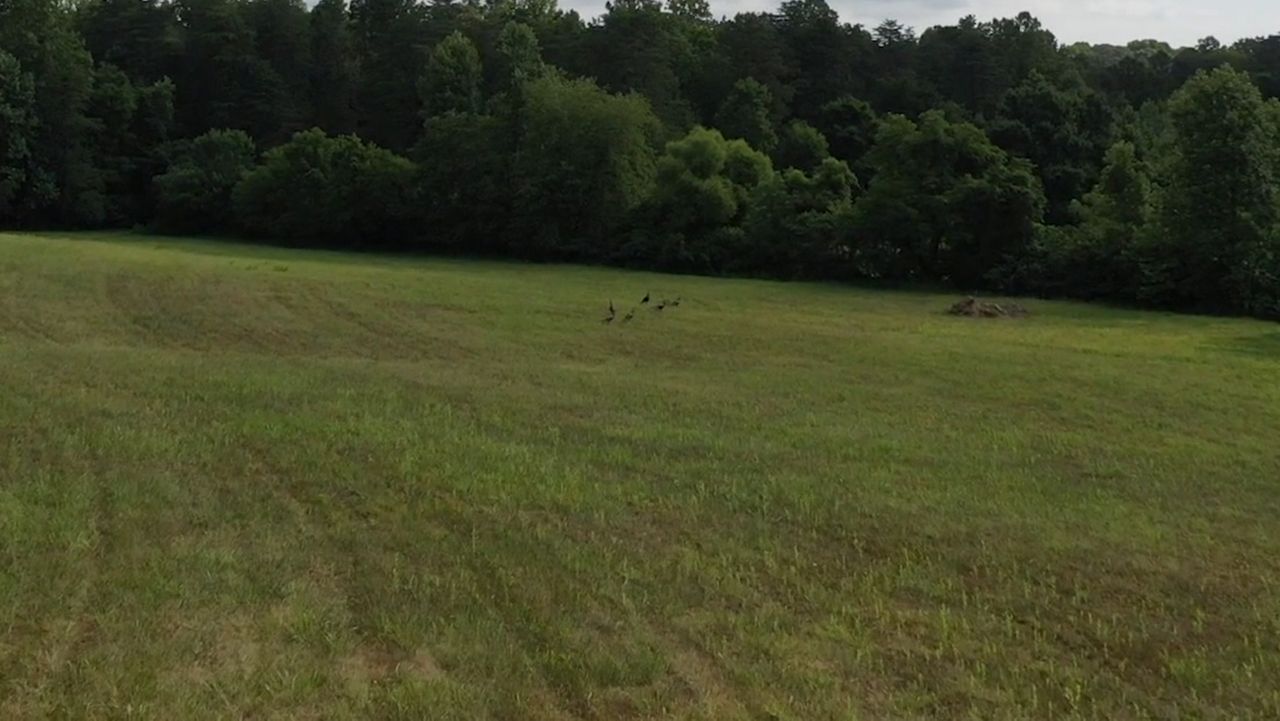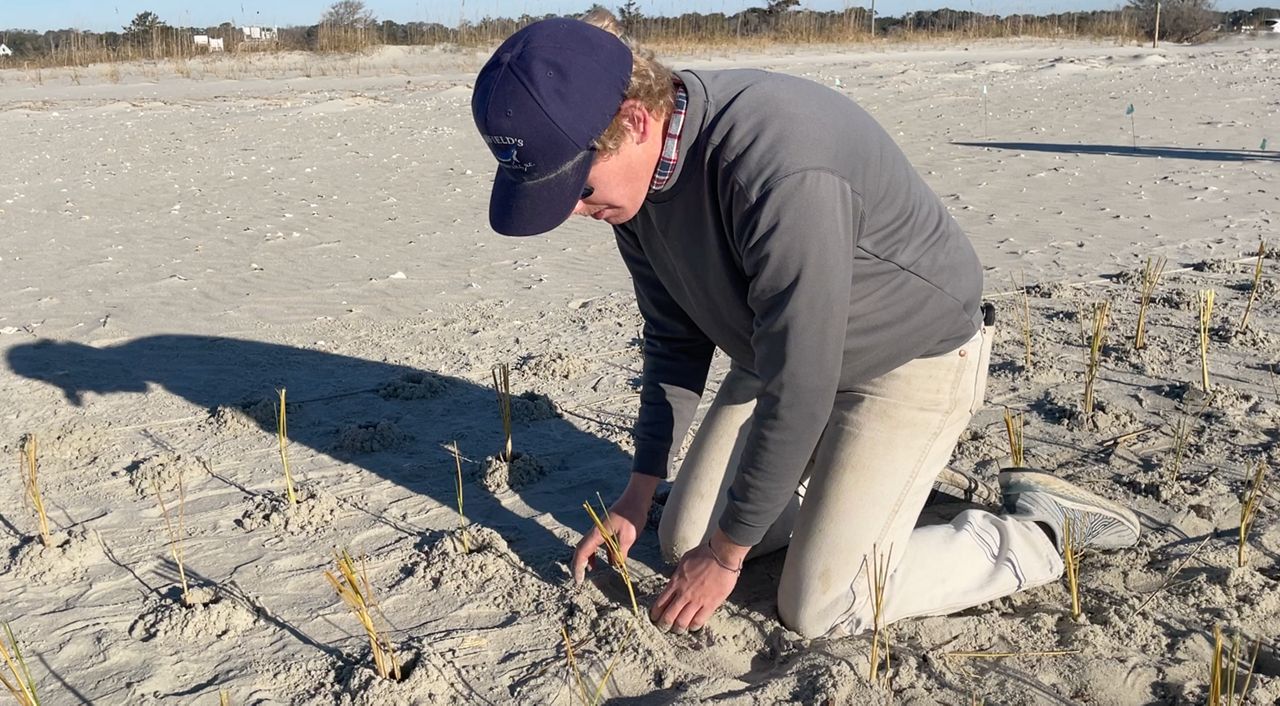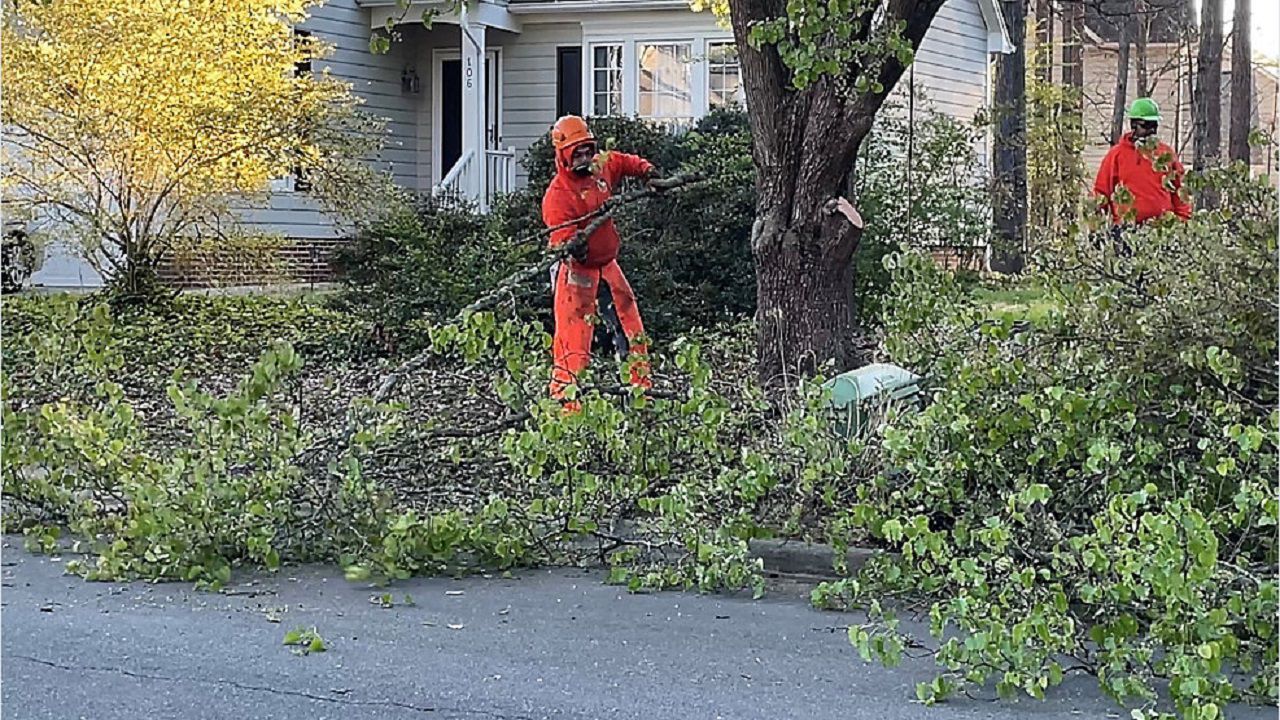BRUSHY MOUNTAIN, N.C. — N.C. State University says 1,800 varieties of apples used to grow in the southeast United States.
Tom Brown of Heritage Apples is a fruit detective, helping rediscover and teach others about heirloom apples. The Crow Egg, Betsy Deaton, Daddy and Turley Winesap are just some of the varieties Brown has helped bring back to the spotlight.
“It’s something that’s exciting for me,” he said.
Unlike some apples found today in grocery stores, heirloom apples are older varieties passed down from generations and are characterized by diverse tastes, textures, sizes and shapes.
His quest started years ago, after he heard about a lost apple, the Harper Seedling, at a farmers market. It prompted him to reach out to his local paper to see if anyone knew about the apple.
“I received about 12 responses, but some of them were, ‘I have an old apple,’ ‘I want to find out what it was,’ but I didn’t find the Harper Seedling,” Brown said.
The modern-day Johnny Appleseed got to work, traveling across North Carolina, Tennessee, Virginia, West Virginia and Georgia to look for the Harper Seedling and others.
“I’ve been all over the place. My car has 392,000 miles on it,” Brown said.
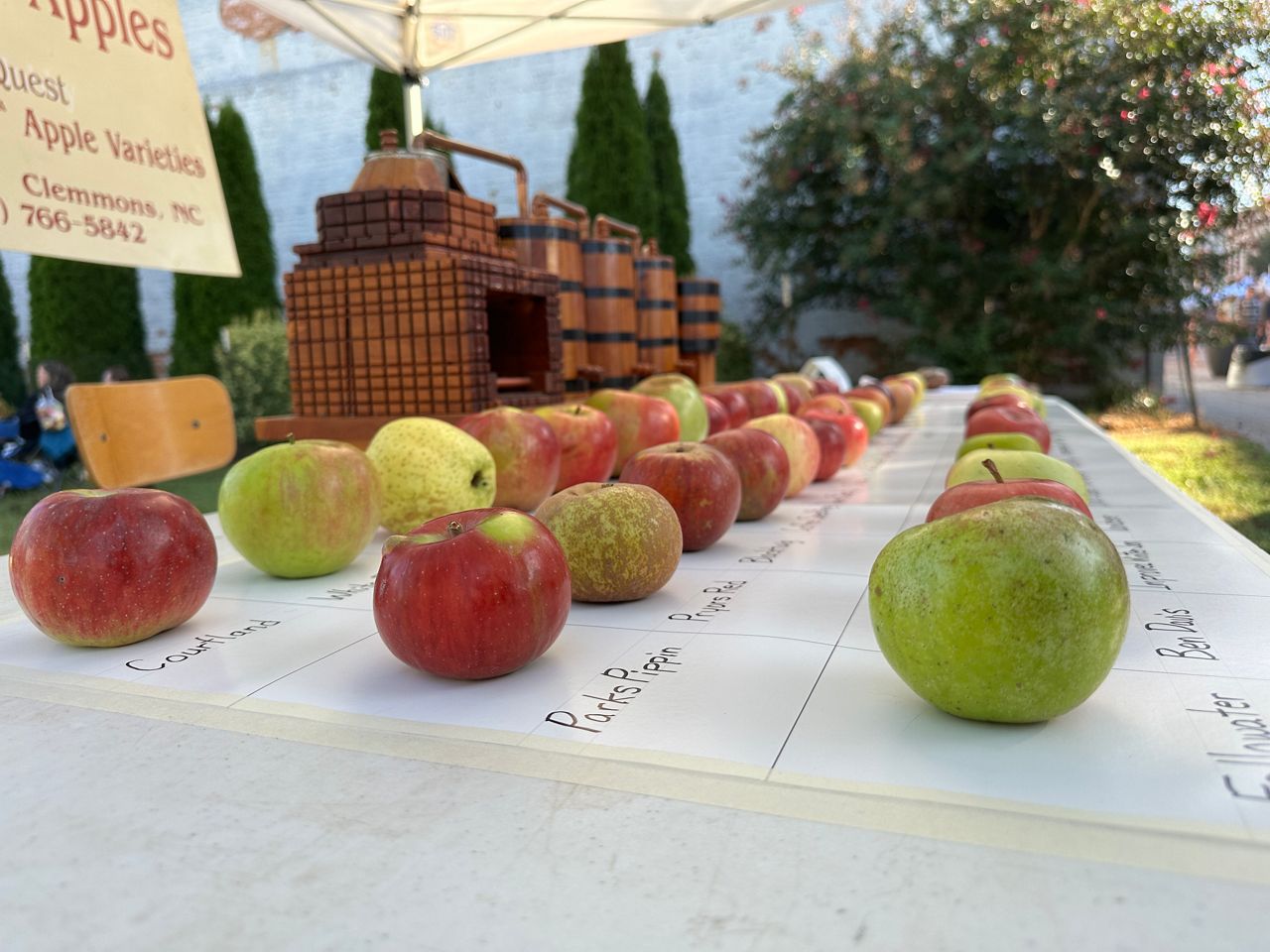
In 1904, the U.S. Department of Agriculture released a study from the past 100 years of all the apple varieties in America, totaling about 7,000 kinds.
Brown says he has found 1,200 different heirloom apples and has at least 700 varieties in his orchard.
“And lot of times these old varieties were really all over the place,” Brown said.
He says some counties in North Carolina have had better turnouts than others in the apple hunt, but each one he finds lets him meet new people and learn their family history, eating different kinds of apples and learning more about the apple family tree.
“I've heard a bunch of different people tell me that their fathers and grandfathers took pride and have an apple different from the neighbors,” Brown said.
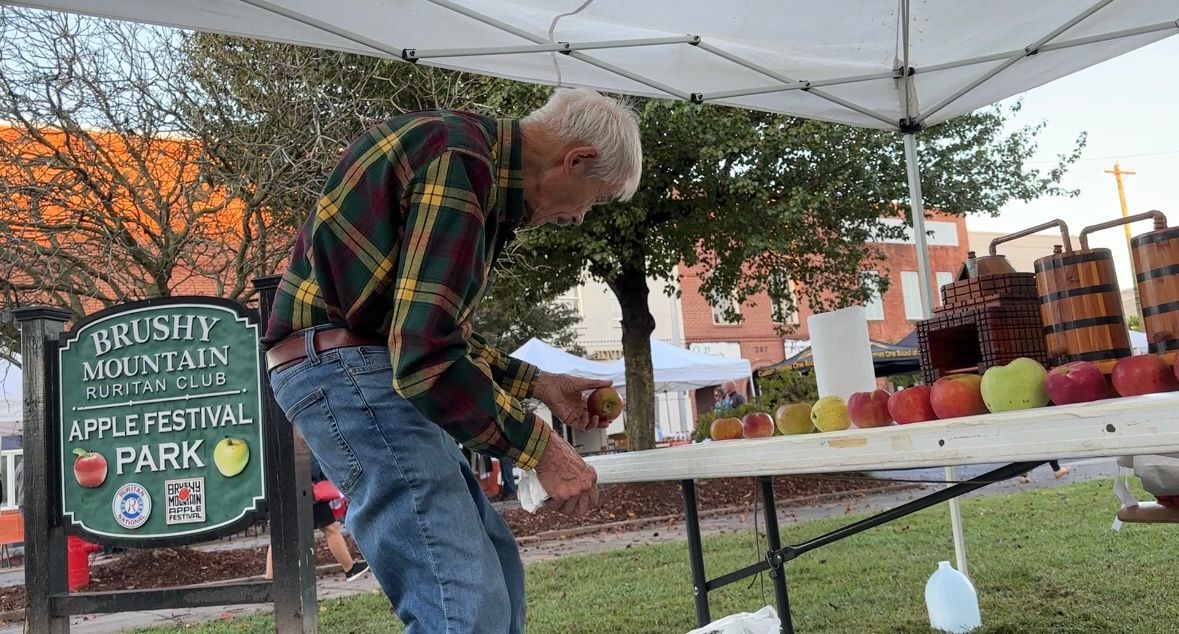
When he travels to festivals, such as the Brushy Mountain Apple Festival, to tell others about his mission and attempts to reconnect families to apples of their past, he encourages them to ask elders about the apples they grew up with.
“That was a real good apple sauce apple. But it would have a problem being a commercial apple because it bruised so easily and, oh, and it would finally turn a little bit a yellow color, but ... when it was like that, it would be overripe. So you would actually pick them when they were still slightly green,” Brown said.
He says the apples now have different qualities from those of the past.
“Years ago they used to sell apples for making hard cider. Well, that goes back to colonial times. If they did that, alcoholic cider, and they dried them,” Brown said.
He says the apple hunt keeps him young, but his search isn’t over, because he says there are a lot more varieties out there waiting to be found.
“Surely 20,000, if not more,” Brown said.
He did eventually find the Harper Seedling, relying on other experts and word of mouth to confirm he had truly found it, and says if he could find one more it would be the Thomas Jefferson Lost Cider Apple.
“My favorite apple is the one I’m looking for that I haven’t found yet,” Brown said.
Brown also grafts the lost apple varieties on his farm and sells them to keep the population going. All of the trees have been purchased for this year.






